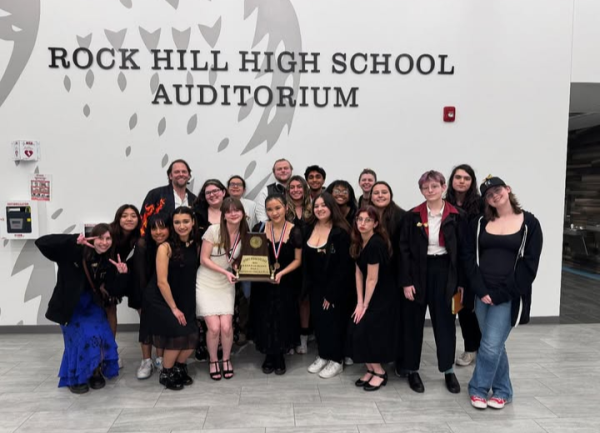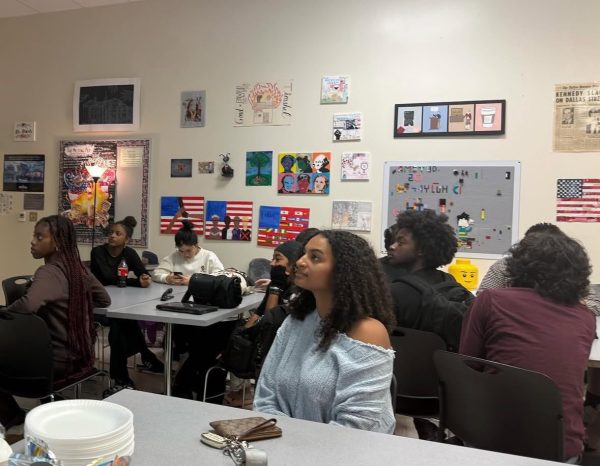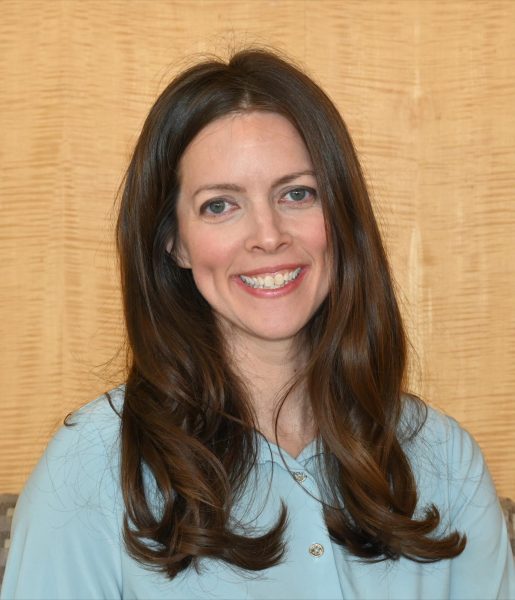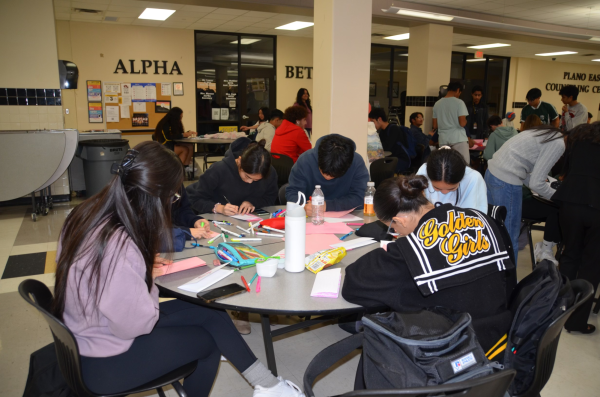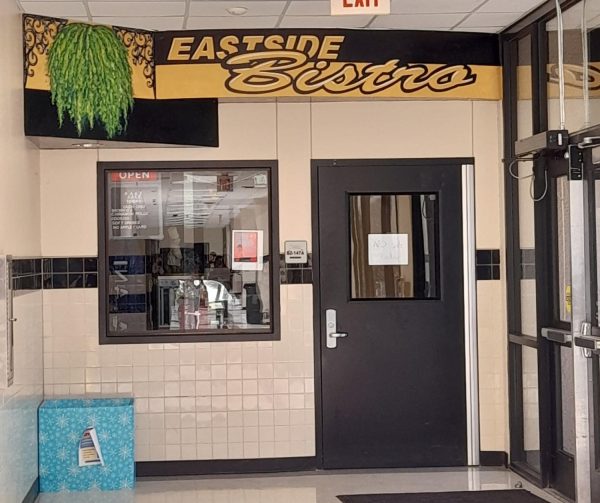Sridatta Teerdhala
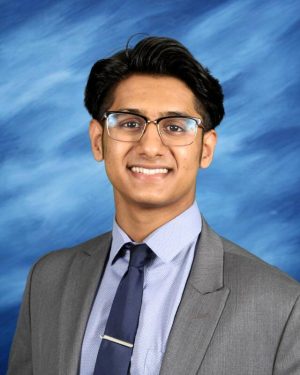
How do you feel knowing that you’re Valedictorian?
“It feels really good knowing that all of your hard work across the past four years came to fruition. When I heard it, I was obviously very, very happy, but I think what’s more important than the actual title is the knowledge and experience I gained in those four years. I feel very fortunate and grateful that I was honored with this.”
What are your plans for after high school graduation?
“I will be attending the University of Pennsylvania in the fall and I will be attending a special program there called Life Sciences and Management (LSM). So basically I will be working toward a dual degree: one in biology from the College of Art and Sciences and one in economics from the Wharton School of business.”
What are you planning to do with those two majors?
“The reason why they have the program in the first place is to blend the world of scientific research and biology with the world of business. That’s exactly what I’m very interested in; I’m interested in the biotech and the medtech industry. With those two degrees and with the skills and experience I’ll gain through that program, I’ll either want to venture into biotech and do some entrepreneurship or maybe head to med school to continue my research and studies into medicine. Maybe [I will] do something after then when it comes to biotech or medtech or become a physician. I’m not sure just yet and I really think this program will help me explore all the different facets of the medical industry.”
How did you come to the decision of what you want to do in college?
“I think my experiences in high school led me into what I want to do in college; I guess even middle school and elementary school [as well]. In middle school and elementary school I knew I loved science. I think that was one of my favorite subjects, so going into high school, I wanted to explore outside of school what science means. Outside of school, I did a lot of research. In 10th grade I worked at UT Southwestern; I did some genetics research there. In the summer before 11th grade I did some chemistry research. Then this year I’ve done some biotech research at home, working on my own innovation. Through those experiences and learning about biology and chemistry and physics in school, I fortified my decision into wanting to do something in science.”
“When it comes to the business aspect, I’ve always loved doing something by myself and forming a team around it, working on something for a common goal. This year taking economics was really interesting to me, so I wanted to combine both of those worlds. When I found this program I felt really lucky that this was the perfect place to do that. In a lot of places you have to do that on your own, especially trying to coordinate a dual degree, but the program itself is the dual degree; they set the framework for you and it’s easy to follow. It’s really an experience, so that’s what led me to my interests and deciding that I want to do this in college.”
What’s the innovation you’re working on and your goals for it?
“Currently I’m working on a project with two of my best friends and it’s currently at International [Science and Engineering Fair] (ISEF) so we’re excited about that. Basically it’s a low cost blood analyzer. It’s kind of based off of a pregnancy test — a very cheap, affordable test. You drop a sample of urine onto the test and it gives you a positive or negative. Basically, we’re taking that pregnancy test — and in general those types of tests are called lateral flow acids — and [we are] taking lateral acids from blood and using machine learning to figure out the relationship between color saturation and protein concentration. We created a device that does this and the applications are that it can reduce the cost of getting a blood test. Blood tests are pretty expensive, especially in the developing world. In rural areas you’ll find these massive, expensive blood analyzers. Right now the cost of this device is around $50 to $100. We still have a long way to go, but that’s our project: to reduce the cost of blood testing and make it more accessible, affordable and convenient to the globe.”
What motivated you throughout the school year?
“I think motivation for me comes through just the fact that I really like exploring different subjects and learning more. Sometimes that motivation can [lapse] when you just are set on learning and you don’t have an external goal. My external goal was during the first semester; I had to work pretty hard to keep up my grades, to get this position. That was definitely some motivation. Then during the first semester and second semester, [it was] just learning because I know I’m going to have to use a lot of this information I’m learning in high school and college and beyond. When you’re given the opportunity to do it, just learn it now. There’s no need to say ‘Oh, I’ll learn that in college’ because you can explore more things in college. When it comes to motivation, I think as long as you enjoy the subject matter, then you can find motivation in just learning it; you don’t really need an external goal like ‘I want to do well in this class so I can impress in college or get into this program or get this grade.’ Obviously if you have that motivation it’s good, but that shouldn’t be the only motivation. I think this year that really helped me to just continue learning even though some of those external motivations weren’t present.”
What or who do you believe were your greatest role models that led you to becoming Valedictorian?
“I’m going to have to go with the cliché answer and pick my parents because they work really hard and they do basically everything for me. How fortunate I was, too; I’m in a community that’s a safe community and I’m at a great school, I have loving friends [and] family [and] supportive teachers. It felt like it was my responsibility to take advantage of all the resources I’ve had and work hard and be as successful as possible. Just looking at a lot of people around the world, a lot of them aren’t as fortunate as we are so just imagining what they could achieve with the resources we have kind of inspired me to take advantage of the resources.”
What advice would you like to give underclassmen about high school or life after graduation?
“I would say [the] first thing is to enjoy high school. You’re never going to get these four years back, and try to focus less on the results or the outcomes. As long as you work hard, you’ll get results — it’ll come automatically. Try not to stress too much about the outcomes and results and instead focus on fostering relationships with your friends or your teachers in high school and forging really unforgettable memories from high school because in 10 years, you’re not going to remember, ‘I got this grade in this class’ or ‘I won this competition.’ You’re going to remember ‘I met this friend and I have this memory of this experience [that] was really fun or funny.’ In the moment, a grade or a test or an assignment can seem really stressful, but even in a week or month or eventually in 10 years it’s going to sound so meaningless. The only thing that’s going to retain its meaning is the relationships you form with your teachers and your friends and the memories you make. So I would advise underclassmen to work hard, of course, but also focus on making relationships and memories.”
If you could describe your senior year in one word or phrase, what would it be and why?
“One word or phrase would be ‘we had to adapt’. Because when it came to this year, when it came to making senior memories and making this year as memorable as possible, you had to adapt and make those memories by yourself — because we weren’t on campus. You had to reach out to friends and teachers by yourself. So I would say we had to adapt this year.”
If you could go back to your first day of high school, what would be one piece of advice you would give your past self?
“I would say to just be more open. Just meet new people [and] make new friends because I think in ninth grade I stuck to my friends in middle school and it was only the last semester of ninth grade that I started to make new friends and that gave me a lot more happiness. People say your junior year is the worst, but for me, the first semester of ninth grade was the worst just because, as I said before, I focused on the wrong things. I would tell my freshman self that first day of school ‘be open, make new friends, reach out to new people, and continue working hard but don’t focus too much on the numerical grade that you’re going to get on an assignment or a project or a test.’”
What activities or extracurriculars did you participate in on campus?
“In addition to NHS, science fair and history fair, I did orchestra for my first two years but I didn’t continue in 11th and 12th grade. I also did Spanish Club for the first three years. I don’t know if they had Spanish Club this year. I attended the Pan American student forum (PASF) event in ninth grade. We went to San Antonio and competed there. I’ve also done Whiz Quiz.”
What accomplishment are you most proud of?
“I’m proud of [how] in science fair this year we made it to international science fair, so that’s something I’ve been really proud of especially since the past three years, that’s been one of our goals. Accomplishing it this year after three years of hard work and the last two years we were able to make ISEF, that was something I was really proud of.”
“Also something I’m really proud of is — [being] the President of the National Honor Society here — this year, despite the pandemic, we were able to have a very successful year. We’ve had more than 16,000 or 17,000 service hours completed by our chapter. We were still able to have service projects and do events and guest speaker events. Looking back, if I were to tell myself we were able to accomplish all this despite the pandemic, I would kind of be shocked so that’s something I’m definitely proud of.”
“I think I’m also very proud of how I’ve matured and grown since freshman year. I entered freshman year as a very different person than I am now. I think back then I didn’t have the knowledge of what was important; I was in that mindset of just focus on grades and nothing else. It didn’t give me a lot of fulfillment [but] I still did well in my classes. In 10th grade and 11th grade and this year, I was able to mature more and realize what’s more important and I think that I did better in my classes because of that.”
What obstacles have you overcome and how?
“When it comes to this year, being out of the classroom was pretty challenging. In general I think this year made me realize the importance of teachers and actually forming relationships with them in the learning process. I think a lot of us — and even I — had the misconception that all you have to do to learn a specific subject is memorize a bunch of content in a textbook. [By] doing that you’ll be knowledgeable [but] you won’t be able to explore that subject in depth. You need a teacher to be by your side and to help you explore something that you’re unfamiliar with. That was definitely a challenge this year, to do that without teachers, and I don’t think anything beats a classroom. Even though I persevered, I don’t think I learned as much as I [would have] if I was in the classroom, so that was definitely a challenge.”
“When it comes to other challenges, I can’t think of many just because I think I’m overall an optimistic person. I’m sure I’ve had challenges but I can’t recall any major challenge other than, obviously, the pandemic. I haven’t been perfect at all when it comes to my grades and everything. I’ve definitely gotten grades that I wasn’t happy about or did not do well on an assignment or project. When it comes to those small setbacks, I think I got over them by [following] the philosophy that whatever happens is for the best of you. So as long as you work hard, you shouldn’t worry about those obstacles. If it’s a bad result, then it’s good for you. If it’s a good result, then it’s also good for you. So I think just adopting that mindset has helped me get past any challenge that I’ve encountered because sometimes challenges and failure are really for the best of you; either they motivate you or they help you realize that you’re on the wrong path. I can’t remember specific challenges other than not doing well on a test or grade or not doing well on a competition, but when it comes to life challenges I’ve been fortunate that I haven’t had to experience a lot of those in my life and I definitely feel grateful about that.”
Is there anyone specific you would like to thank at PESH?
“I would like to thank Mr. Rhett Carter. He was my European history teacher in 10th grade and my APUSH teacher in 11th grade. He’s also the NHS sponsor and the History Club sponsor, so I’ve gotten to know him very well for the past three years. From teaching really fun and intriguing history lessons in class, he’s taught me a lot of life lessons that really helped me mature into a better citizen and a better person. I would definitely like to thank Mr. Carter.”
What are some of your favorite memories from high school?
“I think any time I spent with my friends would count as a good memory. Last year, we would go on a bunch of food adventures, whether it was during lunch or after school. So those were always fun. We would goof around and eat food. When it comes to other memories, projects I guess. In 10th grade humanities, we had this movie project where we had to film a 15-minute movie and make it [like] a tragedy based on an assigned civilization; we had Rome. There was one project scene that we filmed; it was at the creek at the back of PESH, at the back of the soccer fields. It rained the day before, so when we went to film there and then came back, our jeans and pants were full of mud. We had an orchestra [event] right after so that was really fun and is a memory I’ll remember for a long time. In European history we had a bunch of projects. We had these skits. There was this one project at the end of the year, [where] we had to pick 10 European figures in history and explain why they were so impactful. We turned each European figure into an Avenger and then did a musical about it. That was really fun doing that project. Honestly, I think any memory I have with friends was my favorite memory because, as I said before, forging those relationships with friends is more impactful and fulfilling than getting a good grade on a test or competition.”
Any last words of wisdom?
“Don’t worry about the results, work hard, enjoy the moment because that’s going to give you more happiness than a grade or an achievement or an award. While you get happiness from winning something or getting an A on an assignment, that happiness doesn’t last. Whereas the happiness you get from people around you, or just being in the moment and learning something new or trying something new, that happiness is incomparable.”



